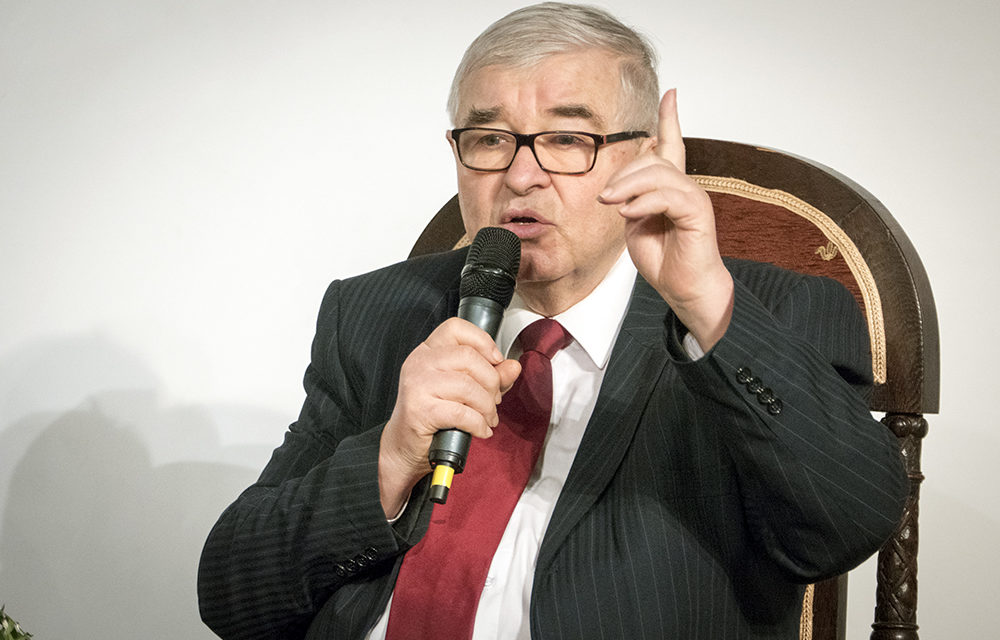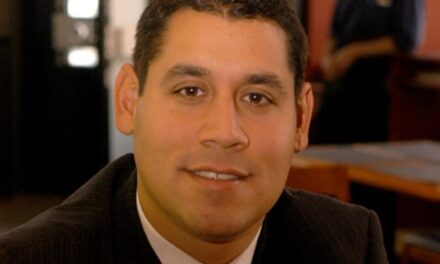Márki-Zay and his team promise us the euro as a gift. Would we end up with the Euro-winning Germans or the losing, chronically indebted southerners?
We are less than ten weeks before parliamentary elections. The public is increasingly interested in what will happen if the current government gets a mandate again, and especially what would happen if this does not happen. After twelve years of continuous government, it is easy to accept the claim that the policy of "Hungary first" will continue to be in force, with national interests at the center.
This is also the main aspect in managing our relations with the outside world. Interest is more focused on what would happen if the opposition came to power. When this happened (1994 and 2002) and so-called left-wing globalist forces came to power, it turned out to be completely different from what Horn and Med-gyessy promised.
Horn referred to expertise, while Medgyessy said he would preserve everything Orbán had achieved, but he would do even better. Under Horn, they "expertly" cheated their globalist supporters abroad of the ownership of the country's productive assets, the standard of living was sent to the basement (1995, Bokros package), under Medgyessy, the state debt of 53 percent of GDP in 2000 became 85 percent, subsidized housing construction loans that can never be repaid in foreign currency-based loans , countless family breakdowns ending in tragedy, teacher layoffs, hospital closures, etc.
"Achieving" the most unfavorable agreements in the EU accession negotiations, even compared to the other accession countries. Even the then left-wing Polish Prime Minister came home with a 55 percent agricultural support package, but 25 percent also suited ours. Between 2002 and 2010, several ex-socialist countries sped past us, as in 1985, Mercedes sped past the Trabant on the M7.
It would be a shame to deal in detail with the sets of promises that are repeated daily and often directly contradict each other, even though the main point emerges from them is that they would continue where they left off in 2010. The prime minister-designate personally believes in a globalist economic and social policy that brings tears to the eyes of the veterans of the former SZDSZ with bad memories. It is likely that they realized that it would be time to somehow sweeten the bleakness of the wild globalist social vision, which could be used to increase the waning voter enthusiasm.
They found the antidote in the euro. They promise, not only at the prime ministerial candidate level, but also their initiated experts, that they will bring our country into the euro zone within five years. The five-year promise is worth stopping for a moment. Why within five years, why not within four years? In our country, the voter's mandate remains unchanged for four years. Be a political scientist on your toes to decipher what the statement "within five years" could mean.
Be good for four years, if we win, and then take the short one, don't be disrespectful, and give us your trust again in 2026, because that's when the euro will come and with it Canaan? Or is it all just inattention, messiness? We do not know. The euro seems to be some kind of very valuable gift that only comes from them, which the current government refuses to give you, because it has no intention of abandoning the HUF for the sake of the euro, despite the fact that several countries joining together with our country have already done so.
As with all political promises, the essence of the matter lies in the details of the euro, so a detailed presentation cannot be avoided here either. It is worth looking into the matter from the beginning. The freer part of Europe, barely emerging from the misery of the Second World War, thought that it would be appropriate to get out of the tight embrace of the United States and the private dollar by joining forces. Economies developed nicely, exports went well, and dollars accumulated in the vaults of the central banks. De Gaulle even tried to exchange some of his dollars for gold at the fixed gold price ($35/ounce) promised in 1944 (at Bretton Woods). It ended ingloriously, Paris was set on fire - "advanced students" (like Cohn-Bendit). In a short time, he left power for good.
The six at that time (EEC) decided to first thoroughly coordinate their economic and financial policies, then create a common currency and thus counter the dominance of the dollar. (They were thinking about ten years of preparation time.) During this decade, the balance of payments should have been brought into balance, inflation suppressed, taxes harmonized, and a bank operating under joint supervision should have been created for the common money. Sensing the European intention to break the hegemony of the dollar, the lords of the dollar did not sleep either. They sent Kissinger to the oil states of the Middle East and convinced them to multiply the price of crude oil and declare that it was now only available for dollars. The plan was implemented between 1973 and 1979 in several gradual price increases.
The idea worked, the European states spent the huge dollar surpluses on oil, and the idea of a common currency was forgotten for a long time (Werner plan). In the meantime, the dollar has freed itself from all its previous international ties. The obligation to exchange the dollar for gold was canceled - forty years ago - and the dollar was also devalued, and exchange rate changes were also freed up. This made the private dollar a real world money for a long time, as planned by the Federal Reserve. The years passed, and the masses of dollars began to pile up all over Europe again.
With their coverage, the dollar-based world economy grew, and a number of banking giants and giga-companies (today they are called multinationals as camouflage) were created. Today's globalization works on their basis, and means that nowadays no one can successfully compete with them on a global scale. They control the financial markets, the markets of major stock exchange products and all sectors that have a decisive impact on the future (digital techniques, artificial intelligence, medicine, etc.).
The lords of the dollar were very bored with many European currencies, since the national authorities still had influence over them. By the eighties of the last century, however, Europe was full of dollars again. They also got a name, they were called Eurodollars. Once again, the oil price trick could not be used to drain them. This is why the second euro project was launched. However, this had nothing to do with the original idea. There was no need to coordinate economic policies or balance balances of payments.
It was no longer a problem if there were countries in debt up to their necks in the future euro zone, such as Belgium (110 percent), Italy (113 percent) or even Greece (98 percent), etc. If necessary, highly skilled American banking giants even deployed legendary innovative financial and accounting techniques for the purpose. Nor was it necessary for the future common bank (ECB) to be subject to equal member state control. Let it also be legendaryly independent, especially from European interests. Latvia, too, and among its leaders, former central bank governors of member countries smuggled into the eurozone with innovative techniques, such as Italy's Draghi or Greece's Papademos, appear more and more often.
When the euro was introduced, nothing else happened than that a good part of the former euro-dollar mass was converted to the new currency, the euro. The masters of the dollar also watched over the "correctness" of the exchange rate. The initial undesirable exchange rate fluctuations were overcome with great effort. The twenty years since 1999 are also very illustrative. Instead of the desired cohesion, the economies of the countries belonging to the Eurozone are far more divided than ever. The group of winners and losers was formed. The main winner is Germany, the losers are the southern euro countries.
The euro is sufficiently weak for the Germans and very strong for the southerners, which is why the chronic indebtedness of the southerners has been realized. There are also plenty of new, chronically indebted states (France's debt has increased to 113 percent, Spain's to 116, Portugal's to 126, Greece to 199, and Italy to 150 percent). In connection with the financial crisis of 2008-09, it was also revealed who is really the boss in the Eurozone. It was not the ECB, but the Fed that saved major European banks from collapse with trillions of dollars.
We should also talk about the latest developments. The post-covid catch-up funds are already talking about the common Euro-European debt. Historical parallels and cross-talk inevitably arise. At that time, this happened to a hair's breadth with the former thirteen independent American states. The brilliant empire-building financier Hamilton's idea to centralize debts was accepted by the states. Since then, the essence of the American federal state has been the common debt.
The chronic proliferation of this is hardly in the interest of the Americans, but it is very much in the interest of the masters of the private dollar, since so far they have financed the institutions and actions necessary for their international expansion from here under the cover of the American flag. The burden of the debt, on the other hand, is transferred to the American taxpayers. Most recently, President Biden insisted on raising corporate taxes, of course for those who operate in the United States. That's why it will be mandatory for others - including us - to do this, so that many tax-paying companies from America don't lose their wheels due to high taxes.
The masters of the private dollar need many new burden bearers. The EU is an ideal destination. In ancient times, there was a saying that the Greeks should be suspected even if they bring gifts. Márki-Zay and his team promise us the euro as a gift. It would take you into a river full of eddies. What do we think, what would happen to us, if we were to quickly rank with the Euro-winning Germans or the losers, chronically indebted southerners? The answer is easy, so the domestic globalist opposition should also be suspected if it wants to bring a gift. The Danes, Swedes, and Britons woke up in time, and the Czechs and Poles are still suspicious. We don't have to stand among the lefties either, as we have done several times since 1990.
Author: economist Imre Boros
Source: Magyar Hírlap
Photo: 2022plus












